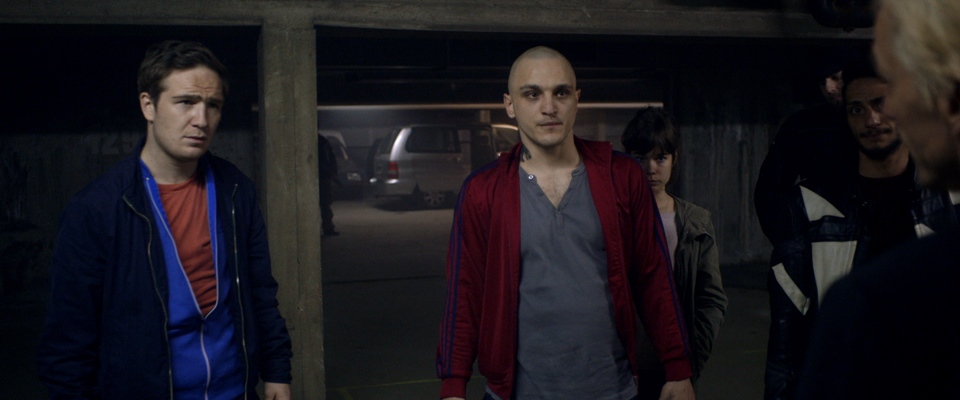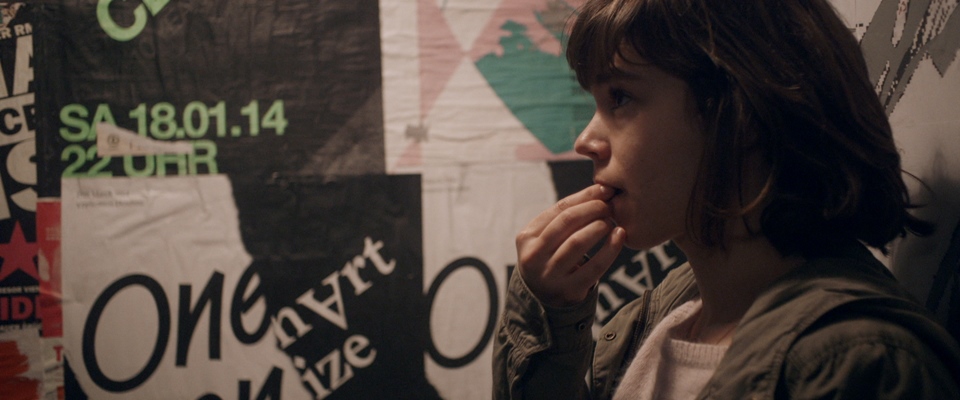Certificate: 15
Running time: 138 minutes
Director: Sebastian Schipper
Starring: Laia Costa, Frederick Lau, Franz Rogowski, Burak Yigit, Max Mauff, Andre M. Hennicke
“You can’t let me in when there’s a baby here,” shouts Sonne (Frederick Lau), as he tries to evade the police. “How stupid are you?”
That Victoria was filmed all in one take is reason enough to be interested. Running a little over two hours, it helps if there’s a decent story in that continuous shot which is worth watching. This one starts out like a bland romantic drama (“I think I’m falling in love with your right now,” says Laia Costa’s Victoria to Sonne, as the two characters flirt in a café). After we see her play Mephisto Waltz, the film suddenly shifts 180 degrees, as we learn that the guys Victoria has met need to go rob a bank.
As Victoria (Laia Costa) exits a nightclub in the early hours of the morning, she meets four guys offering her a ride. They are Sonne (Frederick Lau), Boxer (Franz Rogowski), Blinker (Burak Yigit) and Fuss (Max Mauff). She even questions whether these are their real names. They describe themselves as “real Berlin guys” and ask Victoria (often referring to her as ‘Sister’) if she’d like to join them for a beer. She does, quickly building a connection with Sonne, who joins her as she opens the café she works at. However, when the group are suddenly forced to take on a dangerous job to repay a debt to a criminal, an unfortunate circumstance results in them needing an extra person. So they ask Victoria for her help, and she willingly joins them.
Given the one take nature, comparisons to the likes of similar endeavours such as Russian Ark (hope that doesn’t sound pretentious Jayne), or Birdman (cleverly edited to look like one continuous shot) are inevitable. However, Victoria feels more raw and unrefined. Director Sebastian Schipper co-wrote the film with Olivia Neergaard-Holm and Eike Frederik Schulz (who has a cameo as a bartender), coming up with a 12-page treatment of scenes, locations and actions for the actors to work from. So a large part of the film is improvised. Because of this the dialogue flows and feels natural, yet, at times, is uninspired. The film has more in common with Run Lola Run, as we witness just how much the characters do and how their lives change in such a short space of time.
Notably, Schipper is limited to events in that single time-frame and so crams a lot in there. Even at a little over two hours, there are a few moments where it does drag (Victoria has the time to brush her teeth and there are a couple of awkward silences during car journeys). The film could just as easily end after the 90-minute mark, but there’s more, for it doesn’t take long before the consequences of the characters’ actions catch up with them, and it’s all the better for it. Nils Frahm’s relaxing musical score seeps in at just the right times too, but it also covers over all speech and sound, which unfortunately takes away from the realism.
Thankfully Victoria does succeed in being entertaining and a good deal of that is down to the casting of Laia Costa who is on screen almost all the time. Initially, it looks like we have her character figured out, as Laia portrays Victoria as playful, curious and somewhat naïve. She’s from Spain, but doesn’t know German, so is alienated due to the language barrier, with English being the common ground. Midway through her behaviour is questionable – why would anyone agree to help a group of shifty looking guys that they’ve just met? Granted there might not be much of a film if she said no, yet (without going all spoilerific) there is an attempt to justify this, as we witness a change in her personality. It’s established early on that Victoria is fearless (otherwise she wouldn’t be hanging out with Sonne and his friends), yet she is also largely unnerved once the realisation sets in about what she’s gotten herself into. In the final third she goes so far as to take charge of a situation. Because of the unexpected change in Victoria, the film becomes less predictable and more crazy (in a good way).
The biggest slice of cake goes to cinematographer Sturla Brandth Grøvlen, whose name is the first to appear when the credits roll. Shot with a Canon EOS C300 (all handheld), the film could so easily have come off looking like someone vlogging about the time they robbed a bank. While there is a slightly murky, grainy appearance to the film, it’s clear just how much Grøvlen has pushed himself, delivering compelling cinema as he and his camera captures the action, skillfully following the characters up stairs and into cars.
That it’s in one continuous take is always in the back of your mind, highlighting the limitations of the idea and the low budget. Yet seeing the events unfold and what’s been accomplished in that single take mark Victoria out as exhilarating, offbeat and mesmerising. It cannot be denied just how fascinating it is to watch.
Victoria opens in the UK on 1 April 2016.
Review by Shalimar Sahota.
Originally published on MCM Buzz on 31 March 2016.





